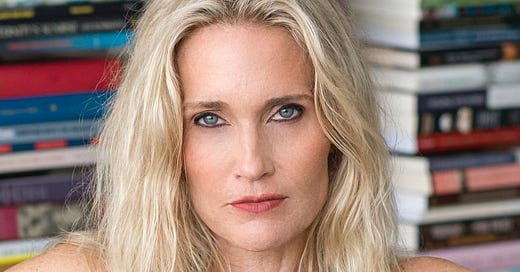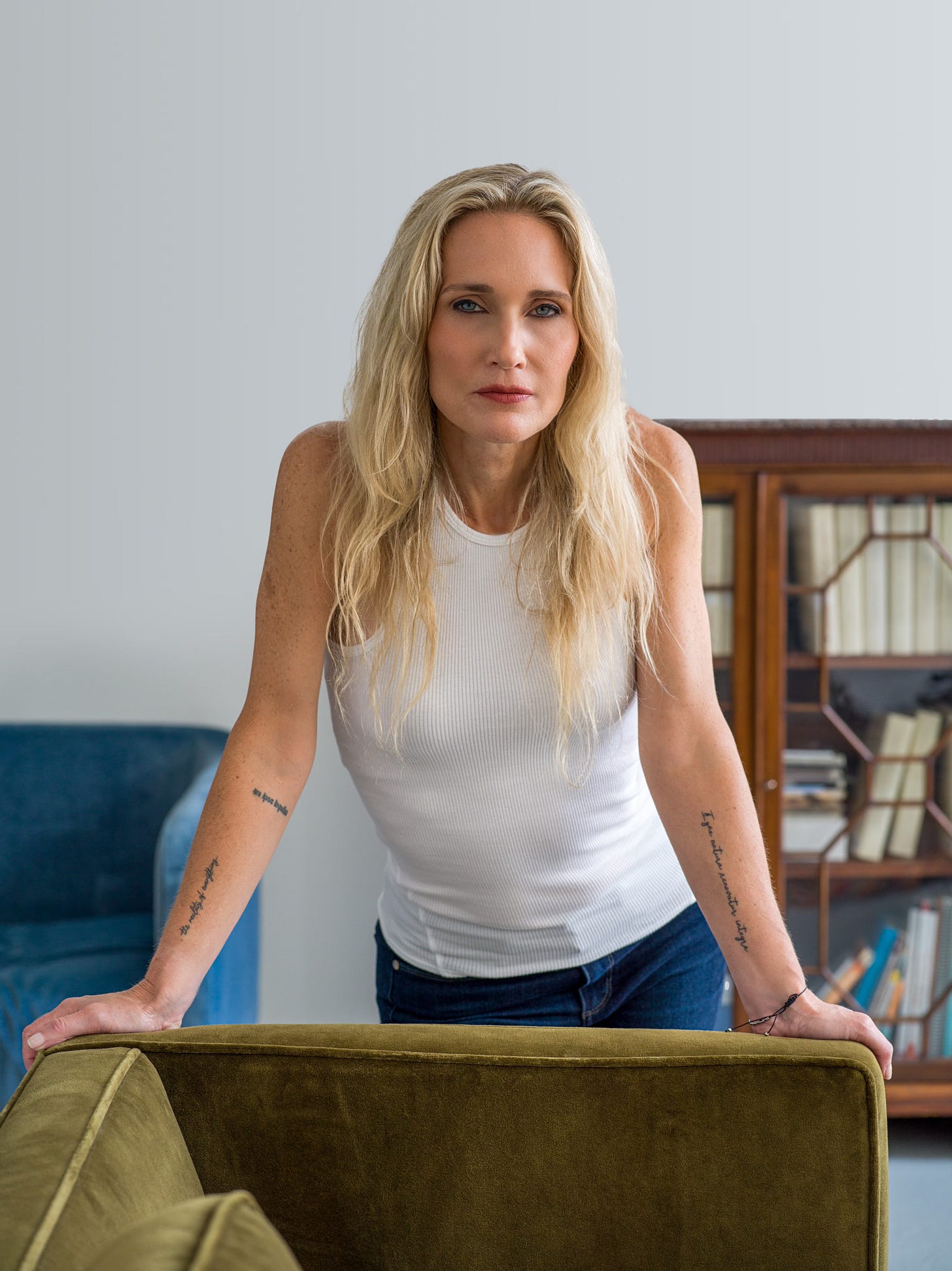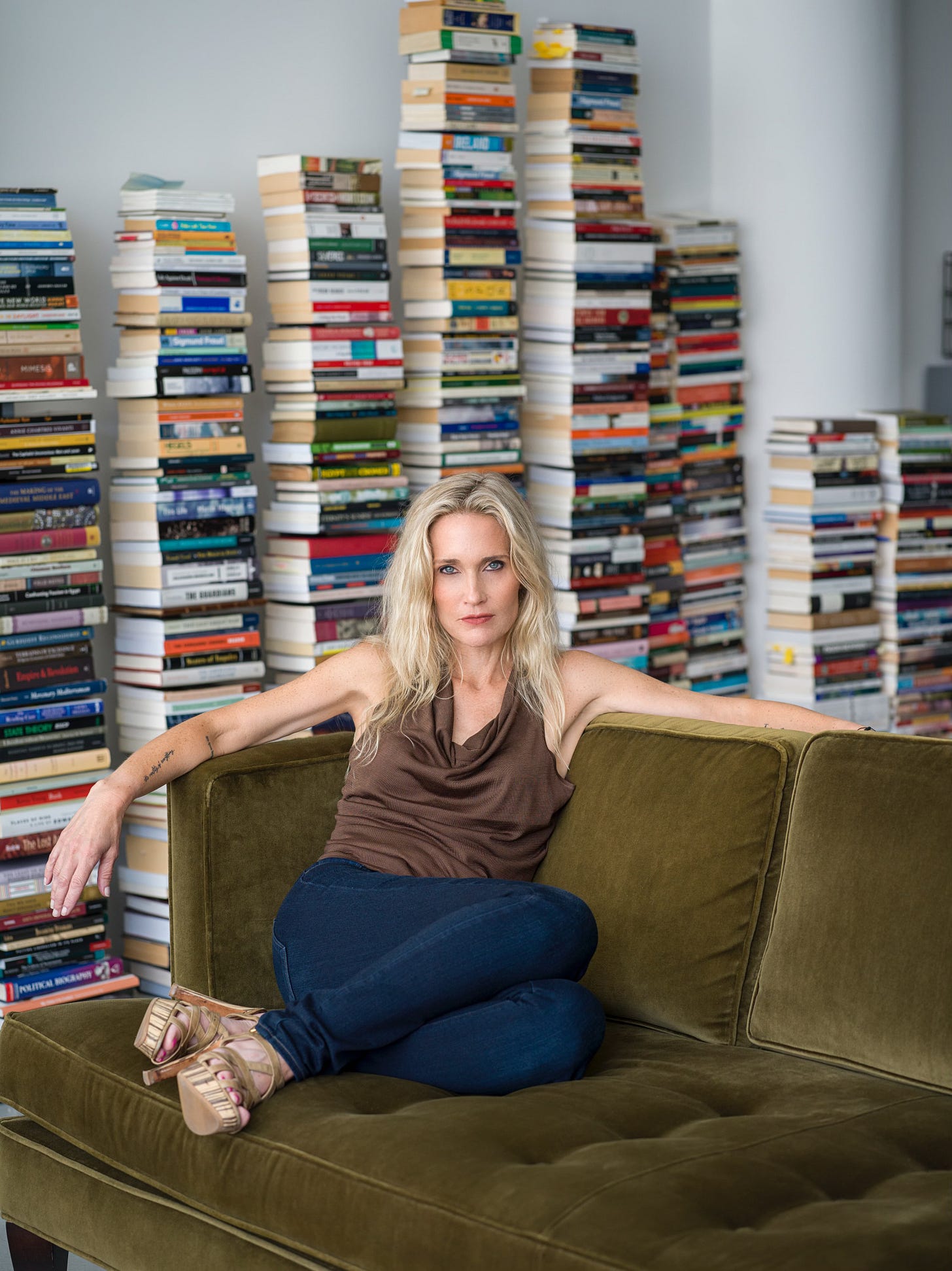Interrogation: Kimberly McCreight
A Blood & Whiskey interview with the author of LIKE MOTHER, LIKE DAUGHTER
Hello friends and readers,
I’m happy to share this Q&A with Kimberly McCreight, whose new novel, Like Mother, Like Daughter (her eighth) I’d reviewed a few months back.
As I wrote back in April, this is the best kind of mystery: layered and tangled but easy to devour, a smart and twisty mix of crime drama, legal thriller, and domestic thriller, with messily believable characters and lots of heart. It’s also a book about learning to raise a teenager, about learning to let go.
The story begins: NYU student Cleo comes home to Brooklyn for a rare dinner with her mom, Kat (they’re not on great terms), but finds smoke spewing from the oven and her mom's bloody shoe under a sofa. While Cleo and the cops search for her, we learn Kat and husband Aidan are separated. We also learn that Kat is “controlling and judgy as hell,” as Cleo puts it, and Aidan is the nice parent, but he’s hiding something. Actually, everyone is, from Kat’s boss to her neighbor to Kat herself, lying about what she really does at her law firm and still keeping secret a dark (and bloody) incident from her past.
I reached out to the Brooklyn-based runner and former lawyer with some Qs and got some thoughtful, surprising, inspiring, and funny replies…
Where do you write (the place) and how (longhand, laptop, etc)?
I’m a member of the Center for Fiction Writers Studio, a small area of the CFF dedicated to people who work full-time as writers. However, when I have to work weekends—which is most of the time—I switch to a local coffee shop so that I can bribe myself with a steady stream of lattes and try to convince myself that I’m not really working. And always on a laptop computer at first! I don’t understand how anyone can write longhand. It just sounds painful! I do, however, turn to marking up pages once the book is good enough for me to go “on paper.” I mark them up extensively—sometimes it looks like I’m writing a whole new book on top of the existing one. I then have an assistant who is kind enough to try to decipher all that and enter the changes. There’s something very tactile about the whole experience for me. For instance, I could never dictate. It’s like my brain needs my hands to help. As for word counts, I always have them, or page counts if I’m revising. I use a program called Pacemaker that helps me keep track.
What was the genesis of Like Mother, Like Daughter?
My relationship with my own teenagers as well as my own upbringing were the inspiration for the novel, in particular how the two have intersected in good and bad ways. I can remember when my older daughter started first asking me real, complex questions about love that left me contemplating the choices I’d made in my own life. It made me realize what a complicated intersection there is in the lives of mothers and daughters.
Who or what helped bring the story to life?
I rely very much on research, but that’s usually later in the process, after I have a complete draft. I prefer to have my own intuition be the guide to finding the story and then fact-check myself after. I, of course, make any necessary changes and sometimes those changes are very necessary! And again, I’d say it was my own life experience in many different facets that most strongly informed the narrative, but readers become absolutely critical later. My editor Jennifer Barth is a patient saint who, believe it or not, makes my books a lot less complicated than they start out. Although at the end they are still pretty complicated! She’s very, very good at isolating superfluous threads.
Anything that helped fuel/sustain the writing?
I am a huge runner. I tend to sign up for a new long-distance race out in the future as I write a new book. I find the training and the writing really inform one another.
Is there another writer who you look up to (or did when you got started) — not just their writing/storytelling but lifestyle, attitude, how they conduct themselves in the world of books? In short, who’s the first writer you remember thinking: I want to do that?
I have many answers to this. I think Andre Dubus III’s House of Sand and Fog was the first book that I read and distinctly remember thinking: I need to do this. That and The Hours by Michael Cunningham. In terms of suspense craft, Gillian Flynn and Liane Moriarty are both bellwethers for me. I find their balance of suspense, theme, and characters to be, in different ways, incredibly inspiring. And in terms of “author citizenship,” I always point to Jodi Picoult, who is just a queen on all fronts. She is respectful and kind to every writer and reader she interacts with. She is an inspiring example of how to be a human in this world. Whenever I feel short on patience, I always think: What would Jodi do? And it’s always taking the high road and reaching for grace.
How have you changed and adapted over time to shifts in the literary ecosystem? Do you write or read differently? Promote your work differently?
I use social media quite a bit, but I limit it to ways I enjoy—which is mostly just Instagram. I actually like using it as a visual storytelling medium. It has become (at times when I’m not deep in book promotion!) another creative outlet for me. And I do very much keep an eye on the market and trends and all that. I am aware when aspects of the market may have become saturated and it’s time to pivot—but that’s more pivoting in the way I position my books. Because they are all crossovers you can talk about them in lots of different but accurate ways. But I think there is only so much you can do on that front. The marketplace certainly should never dictate the stories you write. That’s a recipe for disaster.
Is writing a lonely place for you? If not, why not? Outside of your work, how do you commune with the world?
The writing itself never feels lonely because I’m living in the heavily populated world I’m creating. In there, I have loads of friends! I do find the world of being a writer to be quite isolating, especially if you have a deadline and hence are working all the time! You really do spend all of your time alone and the long hours don’t allow a lot of time for the joining of writers’ groups and such. But I am trying to get better at developing my own network of writer friends by reaching out to others whom I admire who write similar books. Those relationships are absolutely invaluable.
What do you do to get out of your own head?
I meditate regularly and there is the aforementioned running. I also love going to the movies, the theater, and museums. I find it inspiring but also a real way to escape.
Do movies or TV shows influence your writing? Which and how?
Absolutely. Anything that marries complex characters with a thrumming plot engine is absolutely an inspiration—and also great dialogue. I appreciate any willingness to be bold as well, such as in the movie Poor Things. It’s a real reminder not to get tethered too tightly to this world. Classic thrillers like Presumed Innocent, which leave you on the edge of your seat while also genuinely feeling for the characters, are also inspiring as that’s the same balance I try to strike in my books.
Any writer you’d love to meet (dead or alive), and what would you ask them first?
Probably Gillian Flynn. I’d ask how I could convince her to be my friend irl.
What are you reading now and why?
I just started Murakami’s Norwegian Wood. I’m reading it with my daughters in a little book club. It seemed like a great book to reach across the gap between us. I’m not far in, but I’m already considering setting my computer on fire.
What are you writing now?
I’m working on revisions to my new book, Someone Else’s Husband. I’m at the very messy first-draft stage so it’s lots of just staying calm and toiling away.
What's your go-to cocktail or mocktail - and where?
I’ve actually been sober for 20 years, but I still like to try to get fancy mixed drinks when I’m out. I like bartenders to invent. I usually say, “Something with ginger beer that’s not sweet”—that way it’s always a little surprising. Turns out they love to put jalapenos in them these days!
Finally: where would you hide a body?
Come on now, I hire people to hide all my bodies. I don’t like heavy lifting, or getting my hands dirty.
“Gillian Flynn and Liane Moriarty are bellwethers for me. I find their balance of suspense, theme, and characters to be, in different ways, incredibly inspiring.”
Thanks for reading. You can find more “Interrogation” interviews HERE.
Feel free to like or comment below. And if you know others who might enjoy Blood & Whiskey (or need intel on disposing a body), please share:
-Neal
Find me @ Instagram; sometimes Facebook, Twitter, LinkedIn, Goodreads






